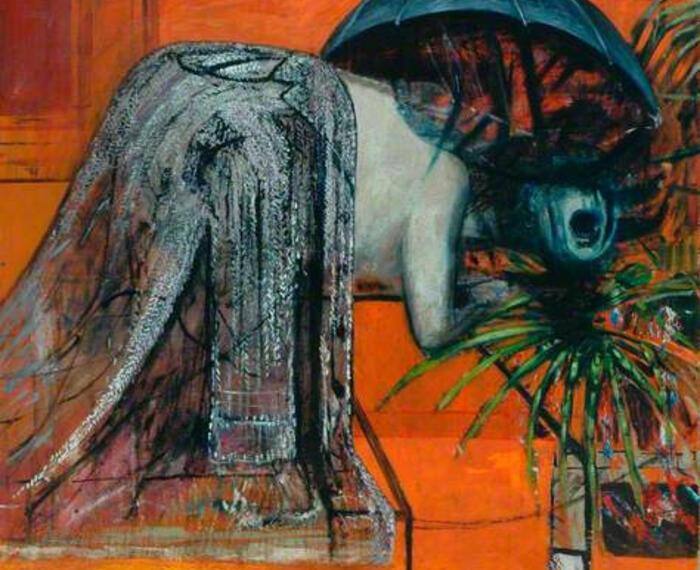Effie Burns is a glassblower from Yorkshire inspired by the natural world around her. She is interested in the slow, meditative practices of growing, tending, foraging, and harvesting. Having spent her childhood living in a museum, Burns is fascinated by how decaying objects can be protected and preserved, yet still radiate their entropic essence. Her glass sculptures, often depicting the found objects she collects during her walks, utilise traditional skills such as casting, gilding, and engraving. Burns often creates work in series, creating a collection of sculptures she deems is her diary of each season. As her objects are all small scale, touch and intimacy is a recurring theme, bridging the fragility and coldness associated with glass as a medium.
Casket (2023) comprises sixteen cast glass pieces meticulously crafted from materials gathered in the artist’s garden and during walks through the nearby park. Ranging in hues from light purple to turquoise, these pieces are showcased within an antique eighteenth-century wooden box lined with olive-coloured velvet. The curated selection of organic matter used in casting these pieces bears traces of decay yet exudes connotations of wellness and a sense of belonging. Among the casted figures are representations such as a chestnut twig mid-bloom, capturing the gradual unfurling of buds at the onset of spring. Additionally, several mushrooms, symbolising community, and interconnectedness with trees, are included. Lastly, the hazelnut, though small, holds special significance. Inspired by Julian of Norwich, a medieval anchoress known for writing the first book in English by a woman, Revelations of Divine Love, Burns commemorates the moment Julian envisioned an entire world within a hazelnut in her palm, stating, ‘All shall be well, and all manner of things shall be well.’
Selected for the decennial Coburg Glass Prize and shown in a Bavarian castle in 2022, Casket preserves the fleeting moments of growth, signalling a hopeful message to carry through the bleak times after the pandemic. The acquisition of Casket connects to both Bradford District Museums and Galleries' arts and natural sciences collections. The museum is hoping that displaying Casket alongside its natural science collections (at Cliffe Castle Museum, Keighley) will create discourse around the importance and fragility of nature, supporting BDMG’s work on climate emergency awareness and promoting sustainability. Additionally, Bradford District Museums and Galleries are pleased to represent a Yorkshire-based glassblower in their collection, with a work that will allow a different, nuanced approach reflecting on the natural world and climate change within Yorkshire.

